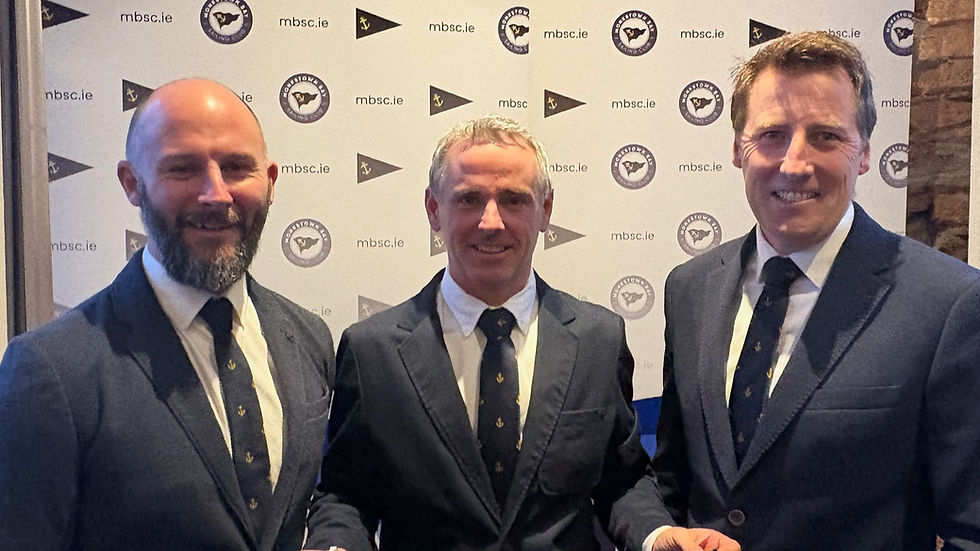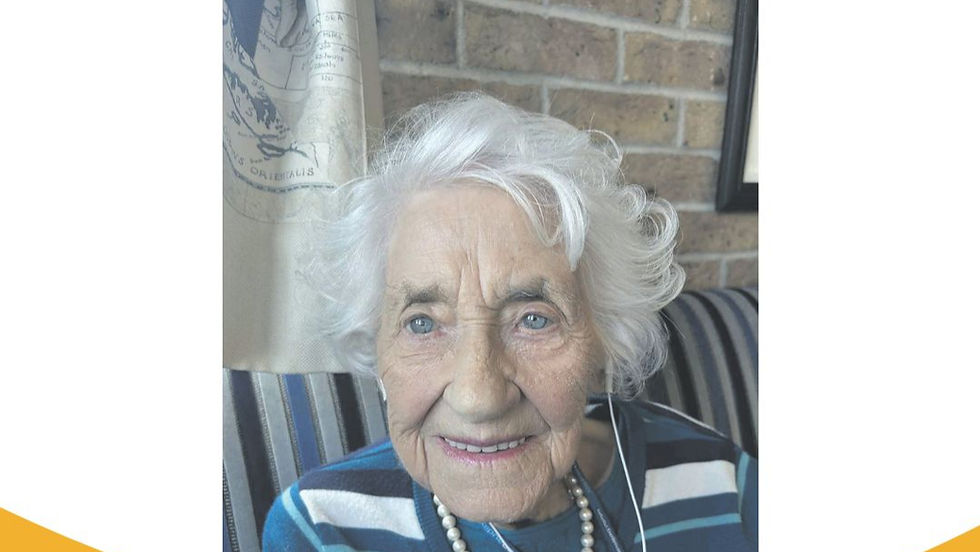The importance of sport for young people
- Online Journalist

- May 9
- 5 min read
My name is Ronan McGrath. I am a Transition Year student at Christian Brothers College Cork, and I have been a keen participant and follower of sport for as long as I can remember. I have been an active member of both Carrigaline United AFC and Carrigaline GAA since I was around six years old. During all this time, from back then up to now, at 17 years of age, there has been a huge evolution in my character, both physically, and mentally, through my involvement in sport.
From my early years up until recently, my main aims and aspirations in playing soccer and GAA was always to be the best player I could be and to win as many matches as possible, both individually and with the team. Due to this ultra-competitive mentality, I was often among the first to dwell on mistakes, whether mine or my teammates', when things didn’t go well. This mindset often led to more mistakes or led to us losing more matches, and over time, I developed some poor attitudes on the pitch, such as blaming others or, in a lot of cases, myself. It became a cycle, every time we lost, I would reflect negatively on my own performance.
Eventually, I started comparing myself to other players I considered better than me. Little did I know that I was taking away the enjoyment of sport from myself and others by emphasising too much on the competitive aspects. This is captured by the quote: “Comparison is the thief of one’s joy”. I’ve learned over the years that comparing yourself to others is pointless and that you should always strive to be the best version of yourself both on, and off the pitch.
Looking back, I’ve now realised that this attitude held me back from truly appreciating what sport had to offer because I was too focused on winning or losing. I’ve come to realise now more than ever, we need the right role models, such as our parents, coaches, older siblings and friends to guide us in the right direction.

Mental health is becoming an increasingly serious topic in today’s society. According to the WHO, more than 720,000 people die by suicide every year, with it being the third leading cause of death of people between 15-29 years old. Overall, about 9 people out of every 100,000 commit suicide in Ireland, according to the Samaritans research policy.
The male suicide rate is at 15 out of 100,000, while the female suicide rate is 4 out of 100,000.
Many young boys and girls struggle to express their feelings and emotions, many of whom, including myself, look towards sport as a way to cope from the pressures of academics, the unrealistic expectations set by social media and the constant need for validation. Every small win and achievement we hold close, using it as a source of pride and motivation in a world full of naysayers and pessimists.
Earlier this year, during a soccer match, I won the ball in a fifty-fifty challenge while playing in goal for Carrigaline’s U17s. However, the other player’s studs accidentally went straight into my ankle. The moment I hit the ground, I knew something was seriously wrong. The pain was unbearable, and I could barely stand up.
I decided to play on until the end of the game because we had already used up all our substitutes. As I limped over to my dad afterwards, he knew better than anyone that I needed to get it checked out. Despite my pleas to let me play another soccer match the following day, he refused and I ended up getting an X-ray.
The news wasn’t good. I had broken my ankle and would be out of action for weeks, if not months. This led to my soccer team being without their normal keeper for the rest of the season and myself missing the start of the GAA season as well. Still, I knew that I could turn this huge negative into a positive by persevering and trying my best, to recover as soon as possible, and keeping a smile on my face.
According to Sport Ireland studies, the number one reason why many teenagers and young adults give up sport is a lack of interest, followed by a lack of time, and then a feeling of not being good enough. That is why I feel the emphasis should be more on inclusion and participation rather than the relentless pursuit of victory.
In the days following the injury, I felt downbeat and frustrated. It was only then that I realised just how central sport had become to my life.
As the old saying goes, “You don’t know what you’ve got until it’s gone”. As I was recovering, all I was thinking of was soccer and gaelic football and how much I missed it. It was what helped me get through all the trials and tribulations of what other areas of life brought.
As I was out of action from all kinds of physical activity for the foreseeable future, I found myself going to a lot of other matches just to watch, as I had nothing else to do. This led to me to think more deeply about the true purpose of young people being involved in sport, a group of teenage boys or girls working together towards a common goal.
I thought about how participation in sport can benefit young people in the long run, when they will be working in teams and groups in the future. Participating in sport has helped me develop many key skills that can also be brought into adulthood. One of these is teamwork. Working with others on the field is similar to collaborating with a team when preparing for a project or event when we are all working in the future. Another important skill I have gained is taking responsibility for both my successes and failures. As I play as a goalkeeper for my soccer and GAA teams, I take pride in every win, trophy, and achievement. However, when we lose, I would always make sure to be the first to acknowledge my mistakes or failures.
This sense of accountability is something I could apply later in life in different roles. And lastly, the friendships I’ve built through sports have had a profound impact on me. Some of the players on my soccer team are teammates I’ve played with since my Under-10 days, and we continue to play together to this day.
Over those lonely days of not playing and sitting at home all day, I slowly came to the realisation that sport was never about being the best or winning; it was always about taking part and being involved in something bigger than myself. About 96% of kids at primary school age and 84% of kids at secondary school age participate at least once a week according to a 2022 Sport Ireland study, and in my opinion every single one of them has their own unique talents and abilities that should be catered for.
For someone who has never taken up sports before, sport offers a way to focus on our main goals and aspirations of becoming a more well-rounded and mature individual. I believe that sport has played as big, if not a bigger role in my physical and emotional development than anything else.




Kabar4d bandar sportbook terpercaya dan terpopuler tahun ini!